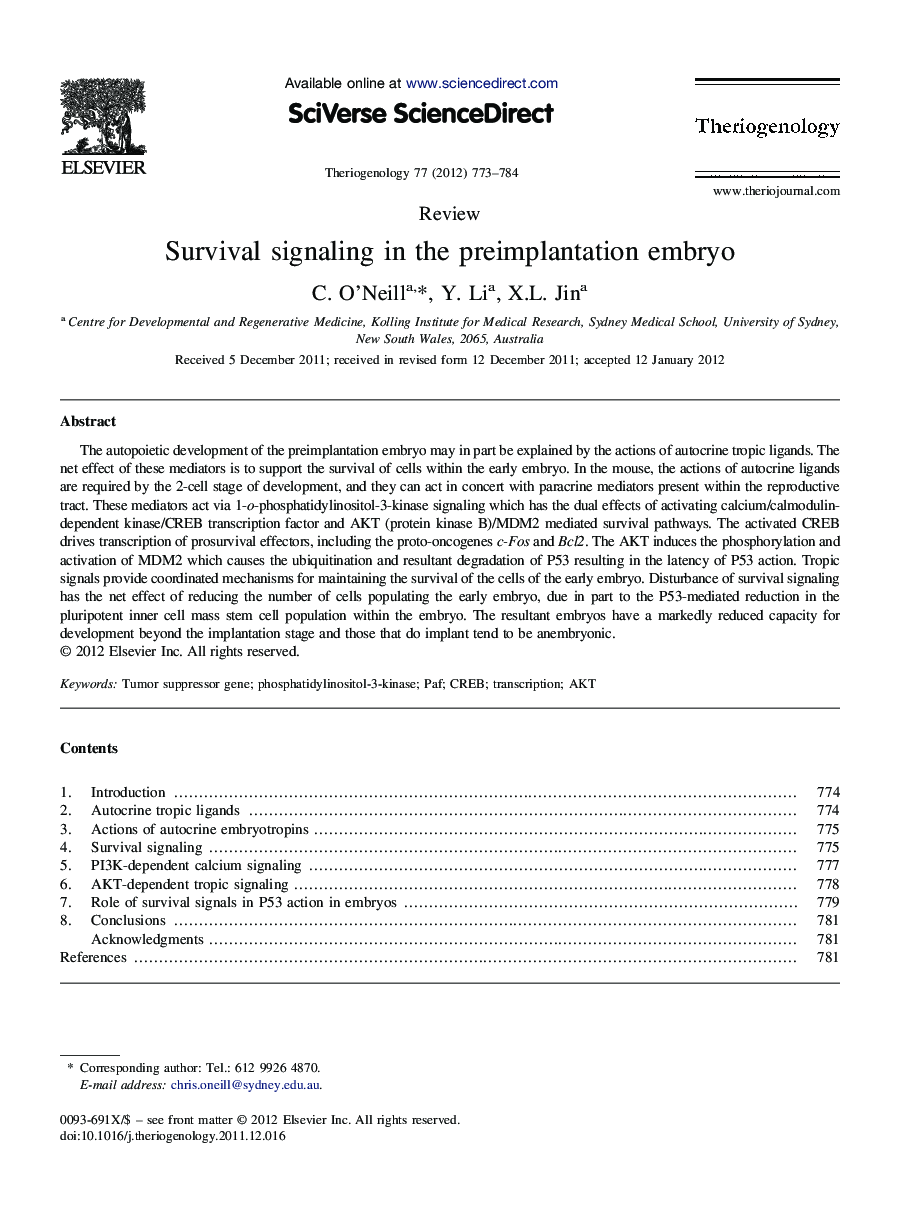| کد مقاله | کد نشریه | سال انتشار | مقاله انگلیسی | نسخه تمام متن |
|---|---|---|---|---|
| 2095699 | 1082133 | 2012 | 12 صفحه PDF | دانلود رایگان |

The autopoietic development of the preimplantation embryo may in part be explained by the actions of autocrine tropic ligands. The net effect of these mediators is to support the survival of cells within the early embryo. In the mouse, the actions of autocrine ligands are required by the 2-cell stage of development, and they can act in concert with paracrine mediators present within the reproductive tract. These mediators act via 1-o-phosphatidylinositol-3-kinase signaling which has the dual effects of activating calcium/calmodulin-dependent kinase/CREB transcription factor and AKT (protein kinase B)/MDM2 mediated survival pathways. The activated CREB drives transcription of prosurvival effectors, including the proto-oncogenes c-Fos and Bcl2. The AKT induces the phosphorylation and activation of MDM2 which causes the ubiquitination and resultant degradation of P53 resulting in the latency of P53 action. Tropic signals provide coordinated mechanisms for maintaining the survival of the cells of the early embryo. Disturbance of survival signaling has the net effect of reducing the number of cells populating the early embryo, due in part to the P53-mediated reduction in the pluripotent inner cell mass stem cell population within the embryo. The resultant embryos have a markedly reduced capacity for development beyond the implantation stage and those that do implant tend to be anembryonic.
Journal: Theriogenology - Volume 77, Issue 4, 1 March 2012, Pages 773–784